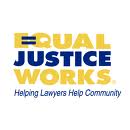By: Steve Grumm
Law students looking for jobs in civil legal aid are probably all too familiar with the litany of bad funding new coming out of that community. But one practice area has seen a funding boost lately. Funds from a national settlement over improper home lending practices are being channeled, via state attorneys general, to programs that support struggling homeowners. Civil legal aid providers who do work in housing and foreclosure defense are benefitting from millions of dollars. Here’s the latest from the U.S. Department of Justice’s Access to Justice Initiative:
On February 9, 2012, the Justice Department announced that the federal government and 49 state attorneys general reached a $25 billion agreement with the five largest mortgage servicers in America, to address mortgage loan servicing and foreclosure abuses. While the majority of the settlement funds will go to various forms of relief provided directly to borrowers, $2.5 billion may be used by state governments to fund foreclosure prevention services including housing counselors, legal aid and other similar public programs as determined by the state attorneys general.
…
Since the date of the settlement, a number of states have made plans to use a portion of the settlement funds to implement funding initiatives geared toward increasing support for services that assist homeowners at risk of foreclosure.
…
Illinois is dedicating at least $20 million in funding from the settlement to legal counseling programs that help borrowers who are currently underwater or facing foreclosure. In Michigan, Attorney General Schuette is backing legislation that would direct $20 million in funds from the settlement to foreclosure counseling and legal aid services for homeowners.
These states are not alone. Attorney General Roy Cooper of North Carolina has committed over $30 million to provide housing counselors and legal services to distressed homeowners. Attorney General Dustin McDaniels of Arkansas plans to direct $3 million of the settlement funds to the Arkansas’ Access to Justice Commission, and to two University of Arkansas law school clinics that provide legal aid and assistance to low-income residents.
“Maryland has led the nation in its swift response to the foreclosure crisis,” said Maryland Governor Martin O’Malley. In May, Maryland Attorney General Doug Gansler and Governor O’Malley announced that $14.8 million from the settlement will be used for both housing counseling and legal aid assistance programs. “This plan sticks to the spirit and the letter of the settlement by using these resources to help the Marylanders most affected by the housing crisis. As a result, all Marylanders will benefit,” said Gansler. And Attorney General Martha Coakley of Massachusetts created a new program, HomeCorps, funded by settlement funds. HomeCorps will provide direct legal representation to distressed borrowers through local civil legal aid attorneys.
Attorney Generals in Alabama, California, Colorado, Indiana, and Tennessee have also announced plans to use settlement dollars to fund programs for low and moderate income residents that include counseling support, legal services, and hotline support referral services.
This isn’t to say that, in one fell swoop, dozens upon dozens of jobs will appear for law grads. A lot of providers that receive this funding are likely to bolster their programs by avoiding layoffs and creating a new position here and there. Nonetheless, this funding windfall presents a true opportunity for law grads seeking staff attorney positions, along with those who are interested in creating postgraduate, project-based fellowships.
Continue to use PSLawNet’s cover letter and resume resources, as well as our fellowship resources. And speaking of fellowship resources, here’s the recording from our recent “Pathways to Postgraduate Fellowships” program, which included much discussion of Equal Justice Works and Skadden fellowships. Good luck!

